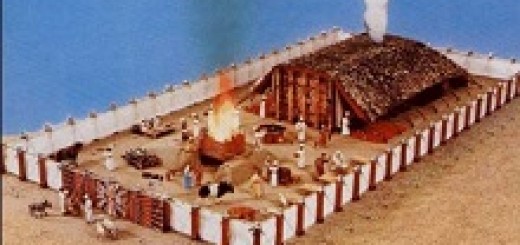By: Rabbi Dovid Markel
Thomas and Tamara were attending a dinner party so that Thomas’s mother could meet Tamara for the first time. Towards the end of the evening, Tamara approached Thomas and asked if there was a problem, as Thomas’s mother seemed to be avoiding her after their first introduction. “Honestly, my dear,” Thomas said, “Mother finds you to be, how should I put it, a bit on the haughty side.” Doesn’t she know that I come from one of the most respected families in Boston? That I was educated in Switzerland? That I attended the finest finishing schools on the East Coast? That I obtained a master’s degree at Vassar, graduating Magna Cum Laude?” Tamara asked. “Yes, yes, my love, I told her all that,” Thomas replied. “Then how the heck does that no good Yente come off with all that haughty garbage?”
If you have ever opened a Torah scroll you may have noticed that not all letters all created equal. There are some letters that are bigger than others, some that are smaller and some the standard size that we are used to seeing.
The beginning of this week’s Torah portion is an example of one of the smaller letters. The Torah portion of Vayikra begins with G-d calling to Moshe for the purpose of teaching him the laws of sacrifice. The first verse says; “And He called to Moshe, and the Lord spoke to him from the Tent of Meeting, saying.” The word that the Torah uses for the word for “And he called,” is the word “Vayikra”. The word, though, has an interesting peculiarity; the last “alef” of the word is smaller than the rest of the letters of the word. Instead of it saying ויקרא it says ויקרא.
Commentaries[1] explain that Moshe, out of his great humility did not want the Torah to write the endearing term of G-d calling to Moshe but rather wanted the term “vayikar” to be used which connotes that G-d chanced upon Moshe and spoke to him.
Moshe Rabeinu was possibly the greatest leader of all time. He took the Jewish people out of Egypt, split the sea, gave them the Torah, led them for forty years in the desert and was the greatest teacher and prophet that the Jewish people have ever had. The Torah, though, when it wants to praise Moshe tells us one thing; “Now this man Moshe was exceedingly humble, more so than any person on the face of the earth[2].” The Torah doesn’t tell us of his leadership, brilliance, riches or strength. It conveys to us that he was humble.
Humility, though, is a funny thing. While we are often vexed by others’ ego and suggest that other people need a dose of humility, when it comes to ourselves, we are often oblivious that we suffer from the same malady. Frequently, we are so haughty that we can be completely unaware of our own haughtiness.
In our culture, humility gets a bad rap. It is no wonder that this is the case when it shares the same etymology as the word “humiliation”. Some may think that wanting to be humble is like wanting to be humiliated. In our society, the most important thing that we try to impart to our children and arouse in ourselves is self-esteem. Humility? Who wants that?!
The Jewish concept of “anava” commonly translated as humility, is something else entirely. It isn’t about humiliation but rather about modesty and it isn’t about self-degradation but rather about putting things into perspective. Instead of focusing on how much greater one is than other men, it instructs one to think of how small he is before G-d. When we feel the urge to be arrogant and conceited as to our own greatness we should consider the following;
- Am I really doing all that I am able, or can I be accomplishing much more than I am doing today?
- While it is easy to focus on my strengths, I know all the weaknesses that I possess.
- The stature and greatness that I have reached are not my own doing. It is a product of my natural abilities, circumstance and ultimately a gift from G-d.
- If my fellow would have all the abilities that I have they would accomplish more than me.
- My fellow attains much more than me considering the challenges that he is faced with.
- In front of G-d how can I boast of my greatness when I realize what I truly am?
A story is told of the third Lubavitcher Rebbe, Rabbi Menachem Mendel of Lubavitch. Once when he was a child a contest was held between all the children in the neighborhood. The winner would be the one who was able to climb a large tree that was in the courtyard of the Shul. All the children attempted to climb the tree but invariably they would fall. When the young Menachem Mendel attempted the climb, he alone made it to the top. When asked how it was that he was successful while all the others were not he responded; “They looked down and became conceited with how much they already climbed, while I looked up and saw how much there is still to climb.”
The humility of the young Rebbe is what led him to greatness. When a person puts things into perspective, his humility is what leads him to true greatness. Instead of being narcissistic he is patient and instead of being caught up in his own hubris and making errors in judgment he can be truly objective. Moshe was not a great leader despite his humility, he was a great leader because of it. When we have a little humility G-d calls to us in an endearing way and resides with us in our lives.






















